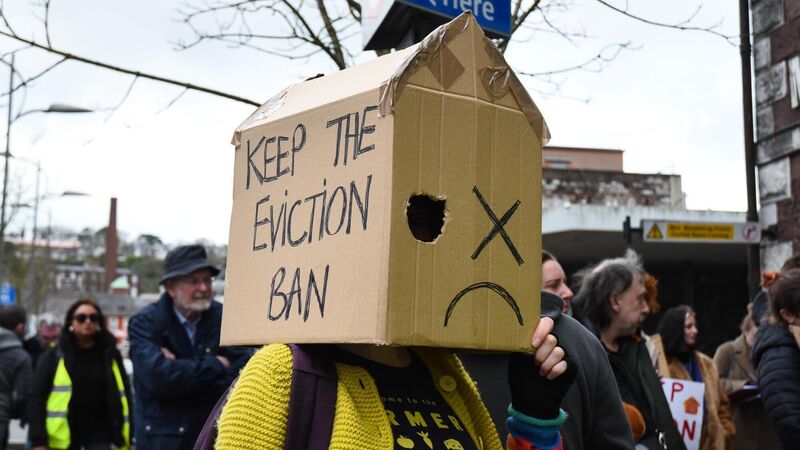Fergus Finlay: Poor political decisions leaving lifetime scars on public psyche

A member of the crowd at a recent protest at Parnell Place, Cork. Picture: Cian O'Regan.
Try from €1.50 / week
SUBSCRIBE
A member of the crowd at a recent protest at Parnell Place, Cork. Picture: Cian O'Regan.
Good politics often leaves a mark. Bad politics leaves scars. All our lives, whether we know it or not, are shaped and informed by politics. We depend on good decisions being made after careful analysis by rational and decent people.
Over the weekend, and I guess for the next few days, we will get a fair few reminders of the art of good politics that brought about peace in Ireland. It’s a strange peace, we know that — nobody seems to want to build on it, but nobody wants to break it either. But it’s there. I wrote here recently about the 1,500 days between the Downing Street Declaration and the Good Friday Agreement. They were 1,500 days of highly skilled politics aimed at one over-riding purpose.
Already a subscriber? Sign in
You have reached your article limit.
Annual €130 €80
Best value
Monthly €12€6 / month
Introductory offers for new customers. Annual billed once for first year. Renews at €130. Monthly initial discount (first 3 months) billed monthly, then €12 a month. Ts&Cs apply.
CONNECT WITH US TODAY
Be the first to know the latest news and updates
Newsletter
Sign up to the best reads of the week from irishexaminer.com selected just for you.

Select your favourite newsletters and get the best of Irish Examiner delivered to your inbox
Sunday, February 8, 2026 - 5:00 PM
Sunday, February 8, 2026 - 6:00 PM
Sunday, February 8, 2026 - 1:00 PM
© Examiner Echo Group Limited